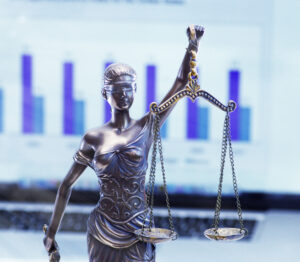These are stressful times. With an unending pandemic, virtual meetings for adults, virtual school for kids, civil unrest, and a deeply divisive presidential election, it is no wonder that divorce rates are up. Also on the rise are questions concerning the ability to continue fertility treatments during the breakdown of a relationship.
Can Fertility Treatment Continue During A Divorce?
This is not a new issue, but an increasingly common one as unprecedented events have made us reconsider what’s important in life. Such as that dream of having a child. Or not staying in an unhealthy marriage. And, sometimes, those two come up at once.
Fertility clinics are having to reassess their policies for when patients disclose that they are going through a divorce. It may seem nosy of a fertility clinic to care, but hey, it isn’t exactly a process that lends itself to a lot of privacy. Not to mention, clinics have very real legal risks when it comes to treating a patient mid-divorce.
I had a chance to chat with Lisa Rinehart, RN, BSN, JD. As a registered nurse who became an attorney, as well as the chief operating officer of a prominent fertility clinic, Rinehart is all too familiar with these issues. She notes that no fertility clinic or doctor should forget a case called Gladu.
The Ghost of Gladu. Richard Gladu and his wife sought treatment from a fertility clinic and successfully conceived a daughter. Later, despite having marital troubles, and without Gladu’s consent, Gladu’s wife returned to the fertility clinic to undergo another embryo transfer procedure with the couple’s remaining embryos. The procedure was a success, and Gladu’s wife became pregnant with another daughter. However, the couple soon divorced.
Gladu sued the fertility clinic, arguing that the clinic should not have been able to rely on a consent from several years earlier (where he agreed to the procedures with his wife for their first daughter), should not have gone forward with helping his wife conceive without his permission, and should now be responsible for child support for the illicitly conceived child. Every fertility clinic’s nightmare came true. Gladu actually prevailed and received a six-figure award of damages against the clinic.
Rinehart explained that although the case is old — from the early 2000s — it has had a lasting effect on clinics, which remain reluctant to proceed with fertility treatments with a married patient without confirming that the spouse is fully on board. That includes confirming that the spouse is still on board, despite whatever forms the spouse may have recently, or not so recently, signed.
So what’s a hopeful-parent-to-be to do when time is of the essence for fertility treatment, and divorce proceedings are painfully slow?
Rinehart advises that step one is to always look to any consent forms signed with a fertility clinic. When going through fertility procedures, a patient will inevitably sign–and maybe even review–lengthy consent forms. In modern times, these forms usually include disposition terms for any cryopreserved eggs, sperm, or embryos, including instructions in the case of death or divorce, or if the cryopreserved material becomes unclaimed.
Rinehart explained that most courts are going to consider (and perhaps follow) what is agreed to between the parties on the consent forms — whether that is one party being able to use the embryos, the embryos being destroyed, or embryos being donated to others. There are exceptions, of course. These include an outlying statute out of Arizona, that requires a judge presiding over a dissolution of marriage to award any cryopreserved embryos to the party “most likely to bring them to birth,” regardless of any documented agreement by the parties to the contrary.
What If there aren’t embryos at issue? Am I in the clear to move forward with fertility treatment?
Marital Presumption. Not so fast. Even if cryopreserved embryos aren’t part of the equation, there may be several other legal obstacles. One is the marital presumption of “paternity” or parentage. State laws generally provide that a child born to a couple during their marriage is the legal child of both spouses. That means even if one or both is not genetically related to the child — and maybe wasn’t even part of the process of fertility treatment or conception (or maybe didn’t even know about it!) — that spouse may still be legally presumed a parent with all the rights and obligations. Including 18 years of child support.
The details of the marital presumption vary from state to state, but, for example, in my home state of Colorado, it applies to any child born within 300 days of the dissolution of marriage. That’s a long time. And it means that even if the pregnancy was conceived after the divorce, the presumption may still apply!
Marital Property. Aside from the presumption of parentage, another issue of concern is what constitutes “marital property.” Like marital presumption, this legal construct varies by state. In a noncommunal property state, marital property often means the assets and debts acquired during marriage. Generally, this property is to be divided equitably between the spouses upon dissolution of marriage. If a woman has gone through cryopreservation of her ova, does that mean splitting her eggs between the parties? Hopefully not. But most state laws were not written with the complexities of cryopreserved reproductive tissue in mind, resulting in many unanswered questions and plenty of room for debate.
There may be shortcuts to moving forward, including a fertility treatment agreement between soon-to-be exes, or a bifurcated order from the divorce court resolving fertility-related issues and leaving the rest of the divorce matters to be resolved in due course.
In summary, whether you are a patient or clinic, consult your friendly, neighborhood assisted reproductive technology attorney for assistance. Before you become another Gladu. You’ll be glad-u did.
 Ellen Trachman is the Managing Attorney of Trachman Law Center, LLC, a Denver-based law firm specializing in assisted reproductive technology law, and co-host of the podcast I Want To Put A Baby In You. You can reach her at babies@abovethelaw.com.
Ellen Trachman is the Managing Attorney of Trachman Law Center, LLC, a Denver-based law firm specializing in assisted reproductive technology law, and co-host of the podcast I Want To Put A Baby In You. You can reach her at babies@abovethelaw.com.











 Jordan Rothman is a partner of
Jordan Rothman is a partner of 





